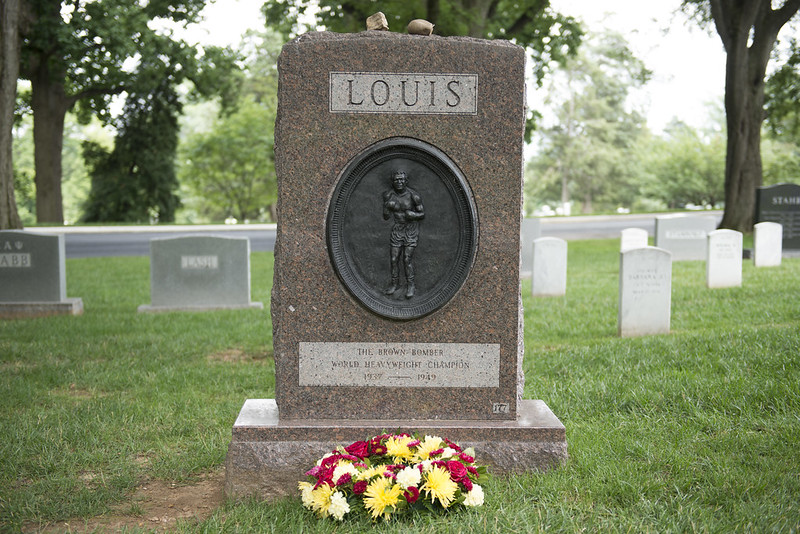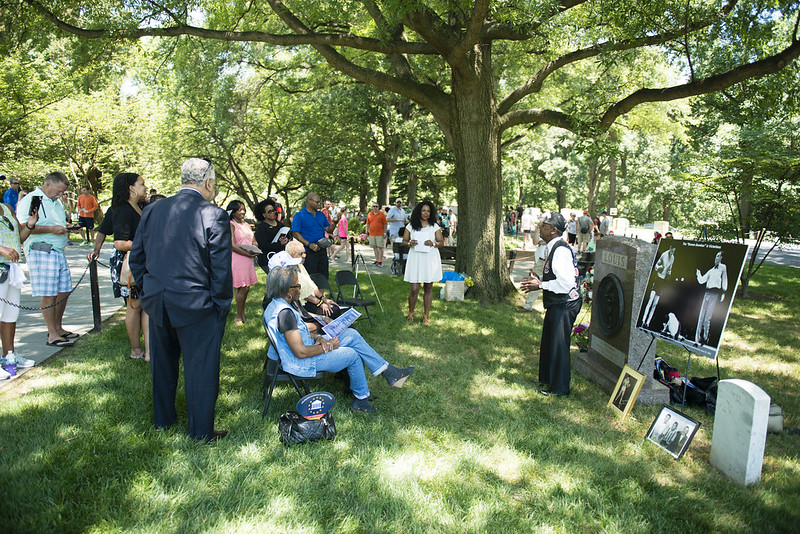Joe Louis (Barrow), "The Brown Bomber"

Between 1937 and 1949, Joe Louis was boxing's "Heavyweight Champion of the World." He held that title longer, and defended it more often, than any other boxer in history. He was one of the first great African-American idols for a whole generation of Americans.
Joe Louis's proper name was Joe Louis Barrow, but he signed up as "Joe Louis" when he fought his first amateur fight, and went by that name throughout his boxing career. Born in Alabama, Louis and his family moved to Detroit when he was a young boy. He was working in Detroit as an automobile assemblyman when he won the U.S. Amateur Athletic Union crown in 1934, and he turned professional that year.
Joe Louis suffered only one defeat in his first 69 fights: to Germany's Max Schmeling, the reigning world heavyweight champion, on June 19, 1936. On June 22, 1938, in what was touted as "the fight of the century," a rematch between Louis and Schmeling drew 70,000 spectators to New York's Yankee Stadium. President Franklin D. Roosevelt met with "the Champ" before the fight; everyone knew that more was at stake on that night than the title. Joe Louis represented America's best, and he was squaring off with Schmeling, the pride of Nazi Germany. Louis pummeled Schmeling, knocking him to the canvas in just over two minutes into the first round.
When the United States finally went to war against Germany in December 1941, Louis enlisted in the Army, serving in the same segregated unit as Jackie Robinson, who would later become the first African-American to play major league baseball. During the war, Louis fought 96 exhibition matches before more than two million troops. He also donated more than $100,000 to Army and Navy relief efforts. He reached the rank of sergeant, and in 1945 received the Legion of Merit for his contributions to troop morale.
Joe Louis retired from boxing on March 1, 1949, with a record of 68 wins and one loss. He came out of retirement in 1950, needing to earn money, but he could not recapture his previous winning streak; he lost his last major bout on October 26, 1951, against future champion Rocky Marciano. He ended his extraordinary 17-year career with a record of 68 wins (54 of them knockouts) and three losses.
When Joe Louis died on April 12, 1981, he had not been champion for more than 32 years. But for millions throughout the world who paid him homage, he would always be "The Champ." President Ronald Reagan made an exception to the requirements for burial at Arlington to allow Louis to be interred with a full military honors funeral. Since his death, thousands of visitors have come to view the gravestone that bears a bas-relief image of the famous fighter and the inscription, "The Brown Bomber."

Pictured: In June 2016, the 80th anniversary of the Joe Louis vs. Max Schmeling fights, Rayne Banks from the Hubert V. Simmons Museum of Negro Leagues Baseball gave remarks during a ceremony to honor and remember Joe Louis.